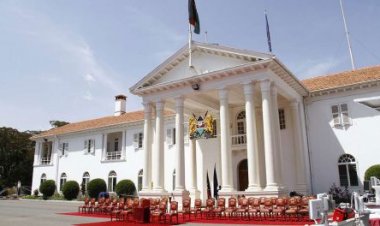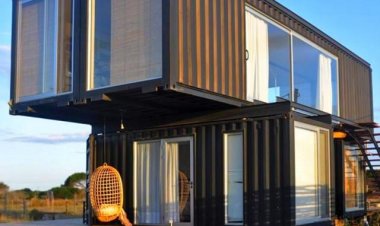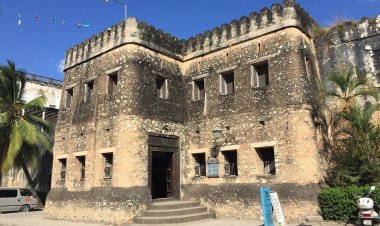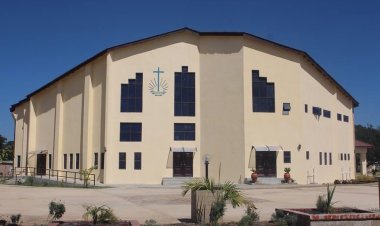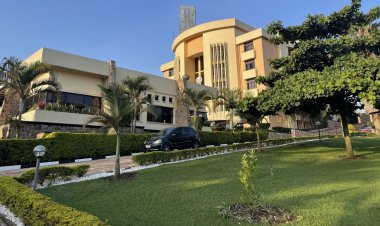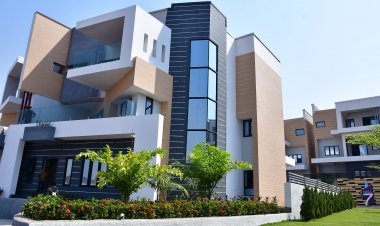Why Its Harder For Kenyans to Own Homes Compared to Americans
Since Kenya's independence, there have only been 240,000 mortgages issued. In a country that has a population of up to 50 million citizens, that number is at a low staggering low which should be a cause of concern in the country.

According to research, there have only been 240,000 mortgages issued since Kenya got its independence. In a country that has a population of up to 50 million citizens, that number is at a low staggering low which should be a cause of concern in the country.
This means that there are those few lucky ones that own land and are able to build their own houses - because it is definitely cheaper than buying and then there are the majority, especially those living in cities and towns who rent houses all their lives and never actually get to own their own homes over the cause of their life.
I was privileged to have a conversation with a real estate expert, who has lived in both Kenya and the United States of America ( USA). While in Kenya, despite the fact that he earned a decent salary, he was unable to buy a house, but when he relocated to the USA, he was able to buy a house in a short period of two years.
After my in-depth research and conversation with real estate experts, the following are the reasons why it is so hard for Kenyans or rather citizens in developing countries to buy houses and property compared to those in developed countries.
1. Money is expensive in developing countries
Reason being;
a) High-interest rates
Banks in Kenya charge interest rates from 15% up to 18% on mortgage loans w while those in the USA only charge 5%. Based on this, there is a clear significant difference in how much of a burden it is to actually buy a house in Kenya than it is in the USA.
b) Lack of laws that prohibits people from charging a certain percentage in interest
Kenya, like most developing countries, lacks laws to protect borrowers from being charged ridiculously high-interest rates by the loan lenders. While developed countries, in this case, the United States of America has a law known as 'Usury law' which Prohibits people from charging beyond a certain percentage in interest.
c) Short payment period
The amortization period for mortgage loan payment in Kenya is 15years while that in the USA is 30 years.
This means if two persons are each buying houses that cost Ksh 1 million/ $ 10000, the one in Kenya will have double pressure while paying back the mortgage loan and will be paying twice as much monthly compared to the one in the United States.
d) High down payment percentage rates
A down payment is the amount of money you are required to put in to show that you are serious and committed to the mortgage payment.
In Kenya, the down payment percentage rates are at 40%. If one is buying a house worth Ksh 1 million, then the down payment will be Ksh 400,000. Bear in mind that the majority of employed Kenyans do not earn even a quarter of that!

In the USA however, there are many different mortgage vehicles that cater to different social niches. For example; if you are a teacher, a firefighter, a police officer, etc, there are programs whereby you get to do zero down payment as long as you:
- Want to buy a house
- Have a good credit score
- Have a job.
All they do is looks at your salary information for the past two years and decide on a percentage that you will be paying monthly or annually towards your mortgage loan.
And that is not all. Now in the USA, there is an amount called the closing cost, which is a very small amount compared to a down payment but even that you do not have to pay. This is because the bank or the city that you live in pays for your closing cost.
e) Salaries in Kenya in relation to inflation
The prices of basic goods are increasing at a higher percentage over the years while Salaries remain stagnant. Because of this, Money becomes extremely expensive because people can barely afford their needs such as food, a lot of people actually live from hand to mouth hence owning a house is viewed as a luxury and not a necessity.
f) Banks are not capitalized enough
This is because the Land Kenya System is messed up. This goes from land not having clear tittles and later being grabbed. Hence scaring off foreign equity investors to plunge into the mortgage industry in Kenya because they cannot be guaranteed of getting their money back because they don't know who owns what land. There is also no title insurance.
What To Be Done;
1)Need to educate and train the mortgage lenders.
2) Need to start different mortgage vehicles.
Establishing different mortgage products is very important this is so that they can cover different niches. A successful business trying to buy a building should not be compared to a person with a minimum wage trying to settle his family.
In short, both should not pay the same 40% down payment nor should they pay the same Interest rates on the mortgage loan. There should be a clear difference, favoring both of them based on equity.
3) People Need More Knowledge on how to Creatively Own Properties.
So how can Kenyans and citizens in developing countries in general creatively and legally own properties without extreme hustle as we have seen above?
Well, Stick around to find out more on this!









